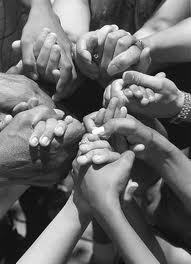
Before I joined the LDS Church as a young child, I was a Catholic (well, sort of). I spent seven years in a private Catholic Elementary School where my nanny would take my sister and I every day and pick us up late in the afternoon.
Since I was small, I was quite outspoken. The nuns didn’t seem to like that characteristic too much so if I said something that wasn’t always in harmony with Catholic teachings, they would chastise me and send me to stand for a few hours next to this gigantic statue of the Virgin Mary OR if I did something really mischievous( like what I did in my first Communion when I led a very mean girl to a place where I saw a bat, the poor animal ended up biting her dress as she cried and run hysterically all over the chapel) I would be send to pray all day, on my knees and forced to confess to Father Robert “all my wicked acts”.
He was extremely patient with me as I told him time and time again that I have nothing to confess “because I am just a child and children do not sin”. He would sigh and tell me to pray and go back to class.
When I joined the Church at the age of eleven, I thought I finally found a place where I could express a lot of my thoughts. As the years passed by, many times my unconventional way of seeing things were not always welcome and to a certain and big extent, they still not but I AM a Mormon, even though:
1. I don’t think a white shirt should be a requirement to pass the sacrament or having a beard a sort of prohibition from serving in a specific calling.
2. I don’t believe the Priesthood ban was inspired by God but by 19th century prejudice.
3. I don’t believe every single word that comes out of the Prophet or his leaders is revelation from God, I don’t believe leaders are infallible. I think they are well-intentioned men who do a lot of good for the Church, with a lot of God’s inspiration and sometimes man-made policies and opinions.
4. I believe some callings come from inspiration and others desperation.
5. I don’t believe that the statement about our leaders “not leading us astray” applies to every single doctrinal issue but applies to basic principles of Salvation (meaning, leading us astray from God and Jesus Christ).
6. I believe in separation of Church and State. Hence, I do not oppose gay marriage (however, I support the Church decision of not wanting to marry gay couples if they don’t wish to do so).
Having said all this, they don’t define me. Why do we define others by them? All these things are just a small part of what I believe and who I am:
A child of God with great hopes and aspirations, a child of God who believes everyone should have a place in the Church of Christ no matter how different they may seem, because in the end we are all here for the same purpose: To return to Him one day.
We can choose to go through this journey together, lifting one another, encouraging each other throughout the journey, looking pass the differences but focusing on the similarities…
OR
We can choose to be separated from one another, concerned about who is right and who is wrong, pointing fingers at one another and worrying about fixing our phylacteries.

As I went back to re-read your posts (to make sure my …ahem.. Assumptions were valid…), I smiled again as I read this one. In a somewhat similar tone, I did my elementary grades in a Catholic school. It wasn’t a parochial school, so we didn’t get the full religious education, but everything was taught through the prism of the faith.
My family was LDS during that time, so my parents took great care in showing us how wrong these teachings were, which only made me want to explore the differences and similarities in more depth. I came to the conclusion that the similarities were hugely disproportional to the differences. Strip away the ceremonial stuff and the archaic language, and the core gospel teachings are identical.
During my mission, I undertook the same exercise with protestant and other Christian faiths, and found much the same.
In the process I came to the realization that when we (the larger “We” of Christain beliefs, not only LDS) focus on the differences between the sects, we tend to invite negative though about them, but when we focus on the similarities, we tend to think lovingly of them. Even I could see soon enough which is the more Christian approach.
As my kids were growing up, I made it a point to take them at least once a year to Sunday services in a different church. As they got older I would help them tune in to the spirit. It was (and is) important to me that they understood that we LDS types don’t have a corner on the spirituality market. The Spirit testifies of truth, and whenever it is spoken or celebrated in another church, the Spirit will be there. I think (hope?) this resulted in their internalizing
This fact.
So yes, there is room for all, because we are much more alike than we are different.